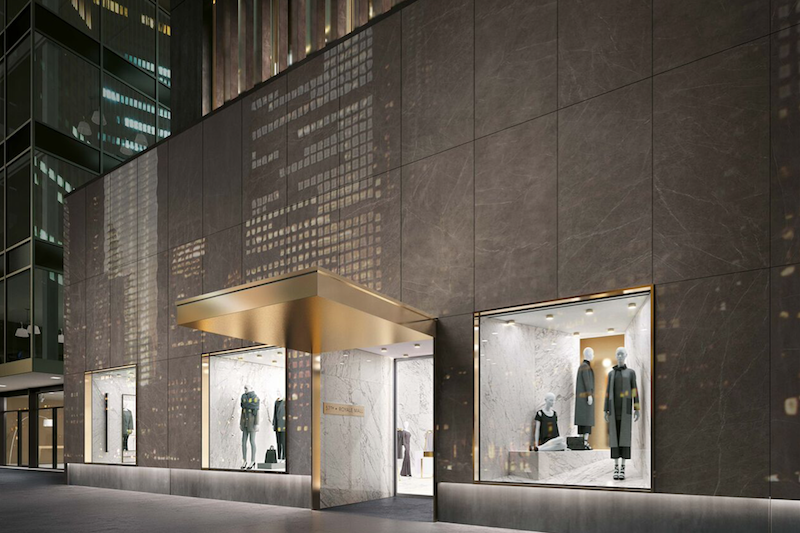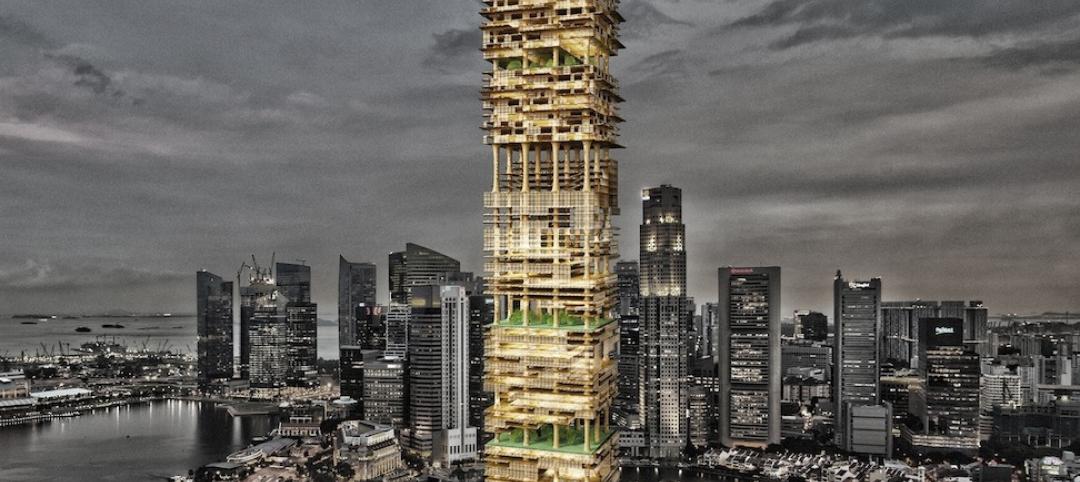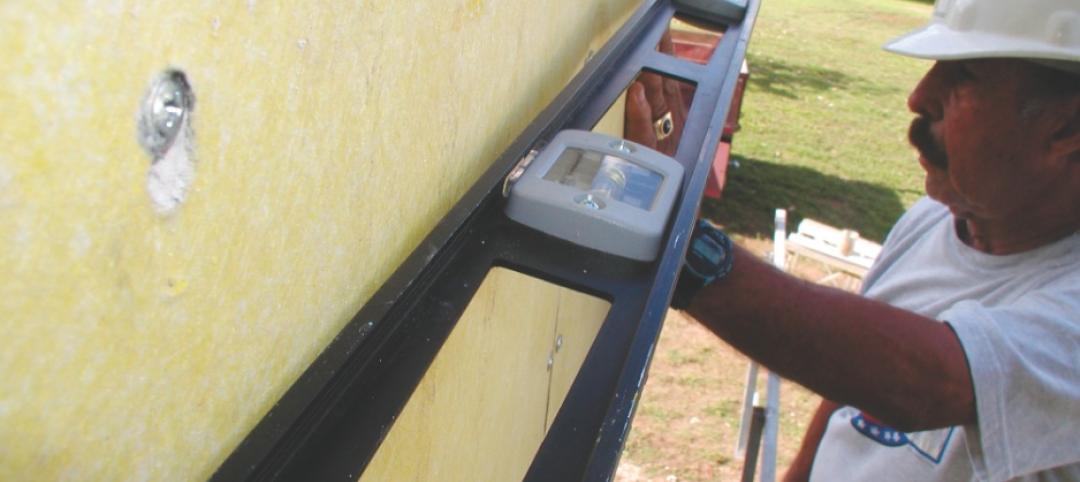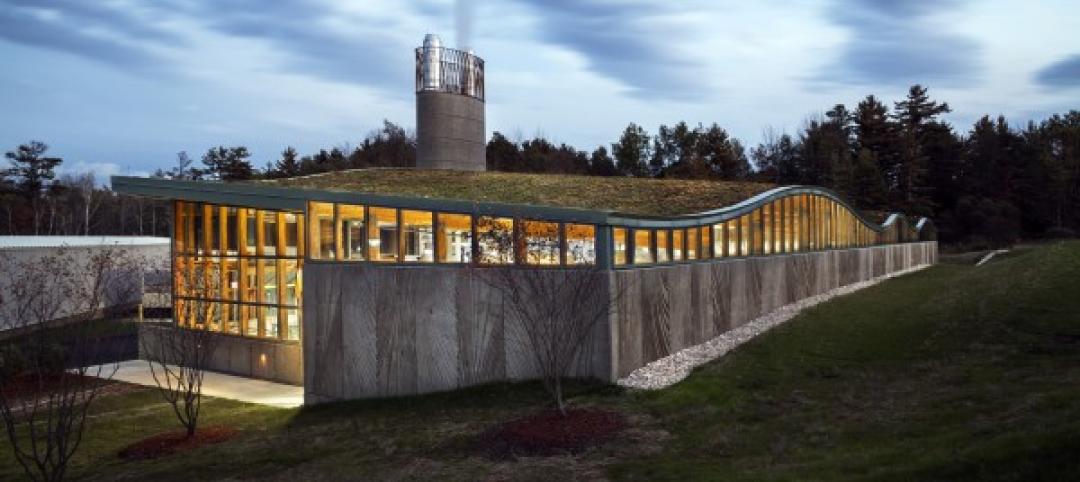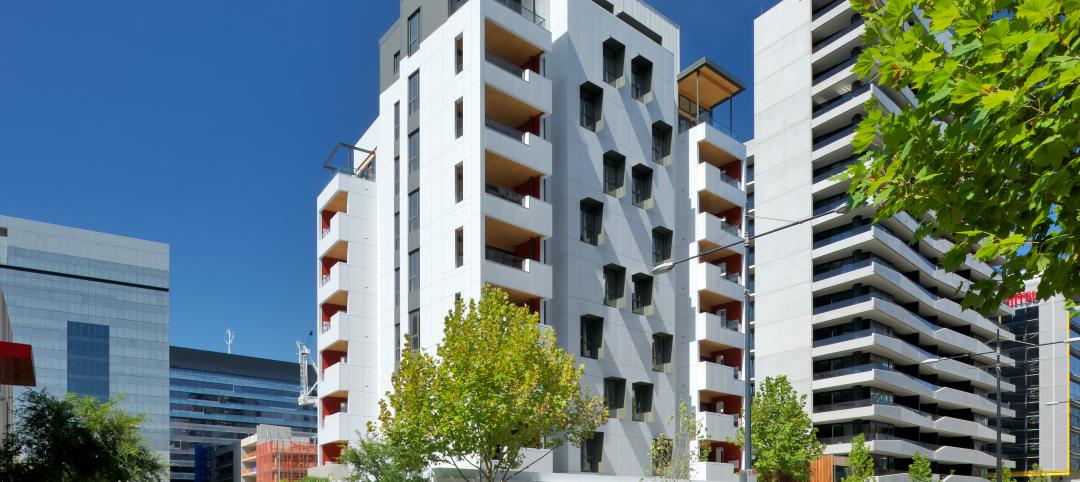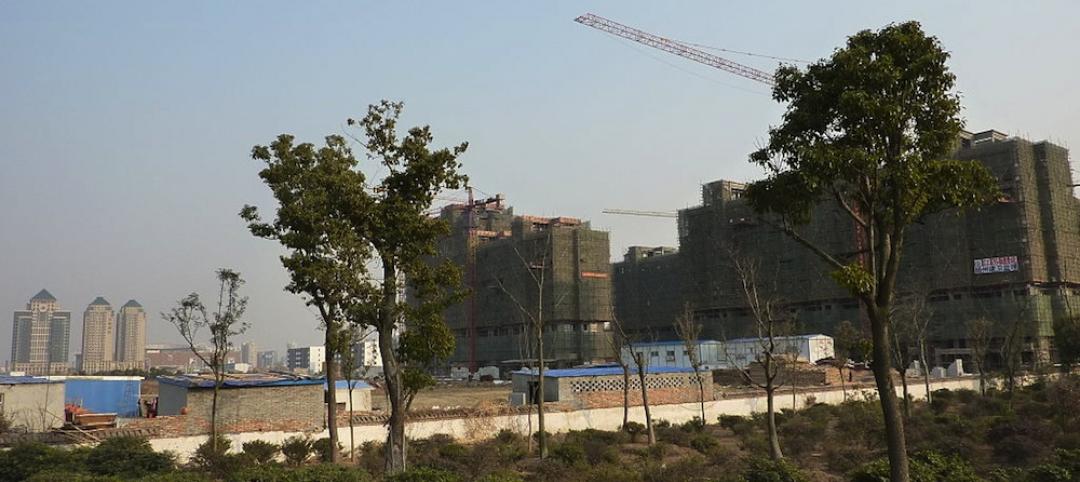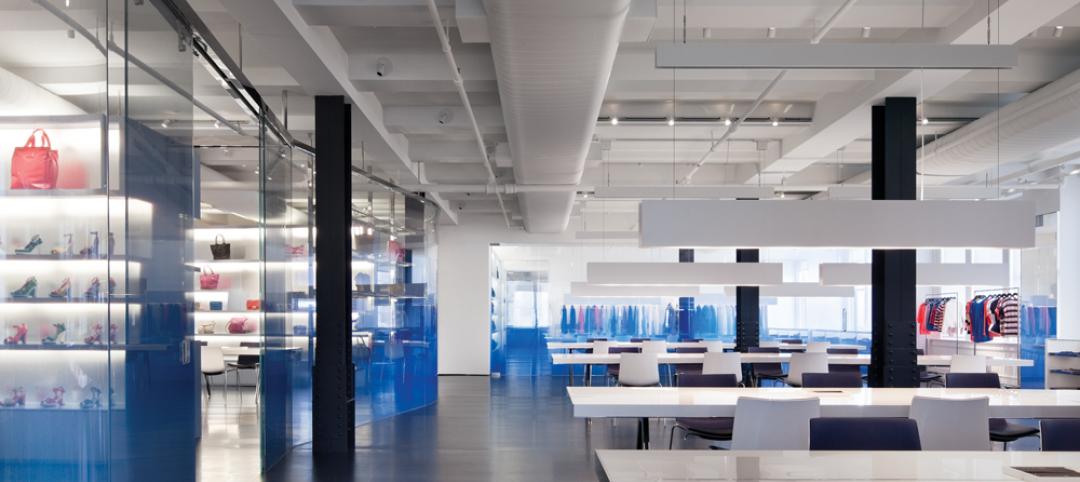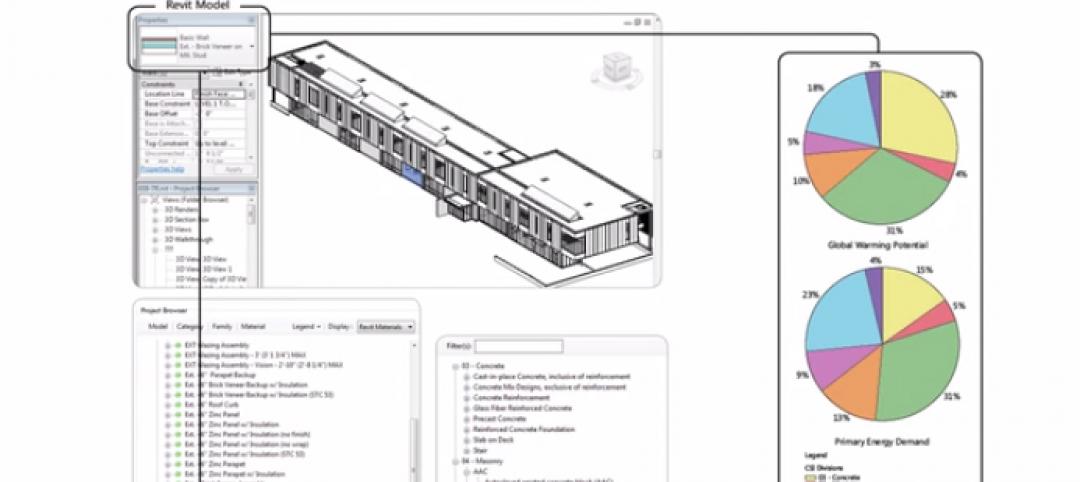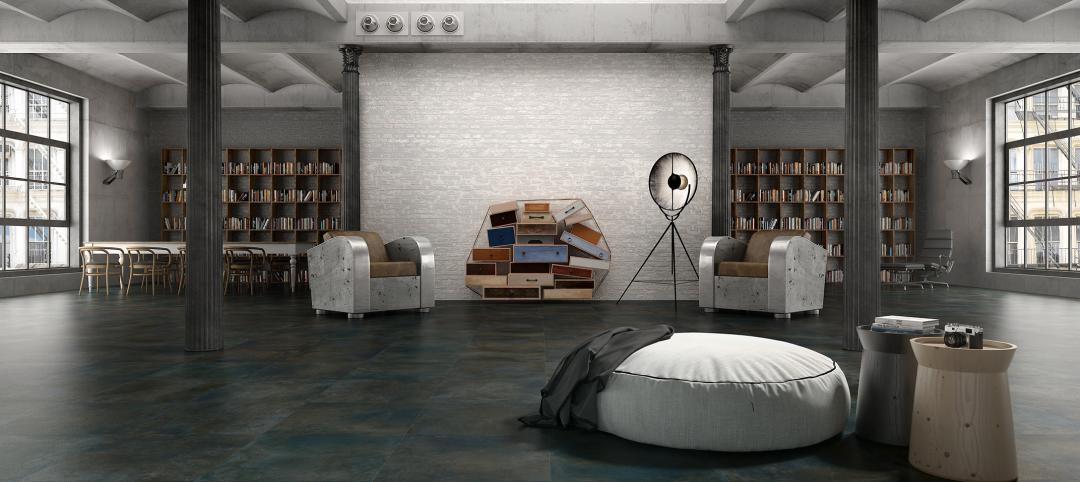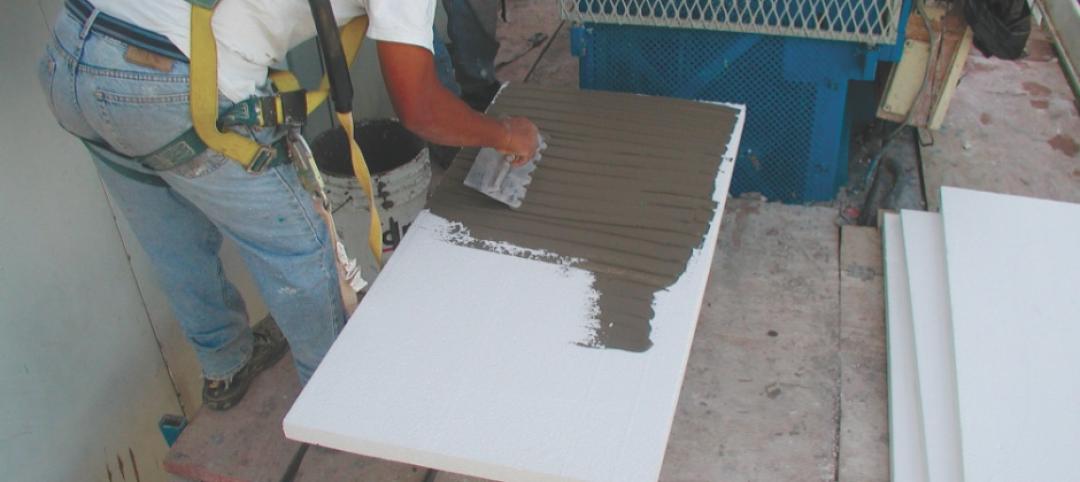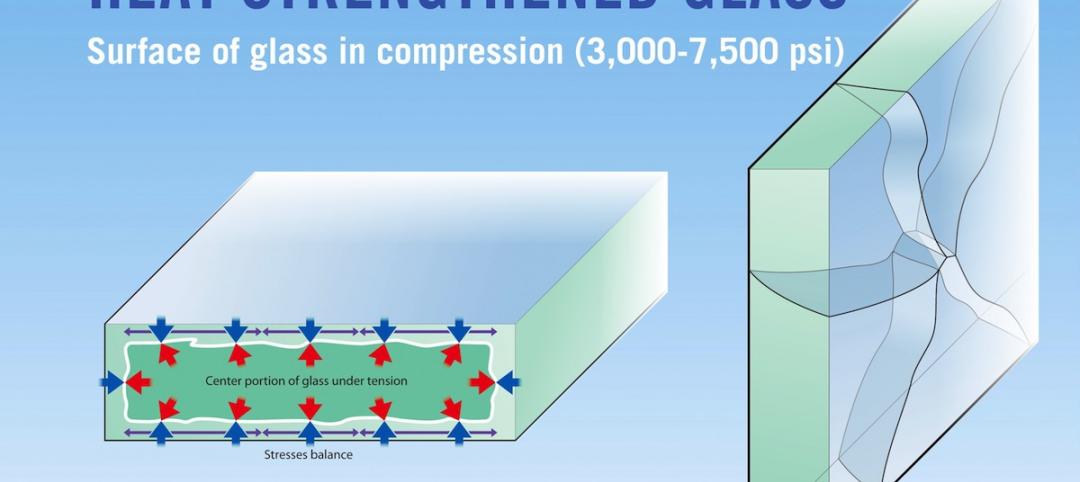Cersaie, the world’s largest exhibition of ceramic tile and bathroom furnishings, was held in Bologna, Italy this past September and, now, Ceramics of Italy has taken what they saw on display at the show and created a list of the top 10 tile trends to watch as we head into 2017. The diverse list includes a multitude of colors, textures, and finishes. Scroll down to view the complete list.
Against the grain
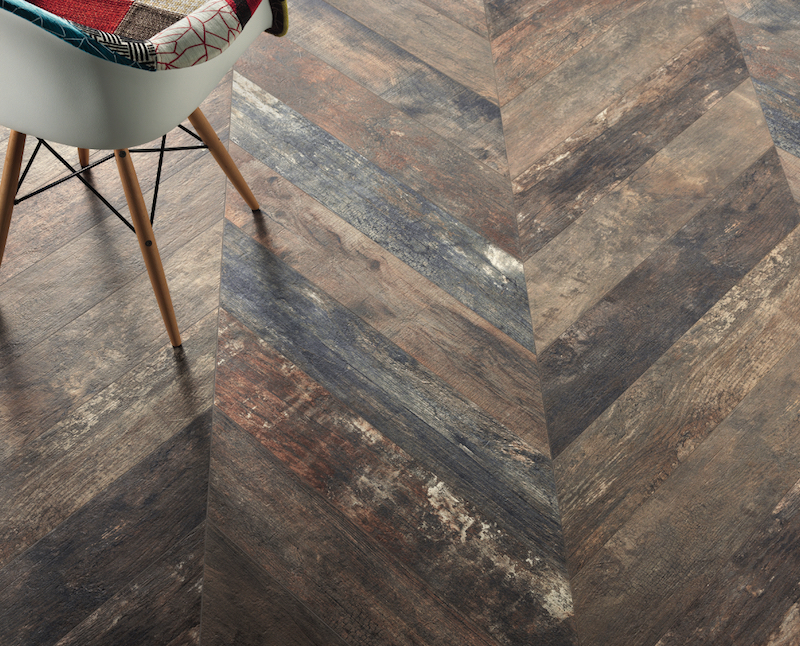 Pictured: Pastorelli - Komi
Pictured: Pastorelli - Komi
Wood continues to serve as a major muse for the tile industry, with companies adding their own twist and utilizing new production methods to create a whole new typology of floor and wall covering. Some are inspired by exotic woods, offering a beautiful, sustainable alternative to rare hardwoods such as Kauri while others recreate the warmth and imperfections of wood in 2cm outdoor pavers, large thin slabs, kaleidoscopic patterns and three-dimensional tiles that are virtually impossible to achieve with real timber.
Bits & Pieces
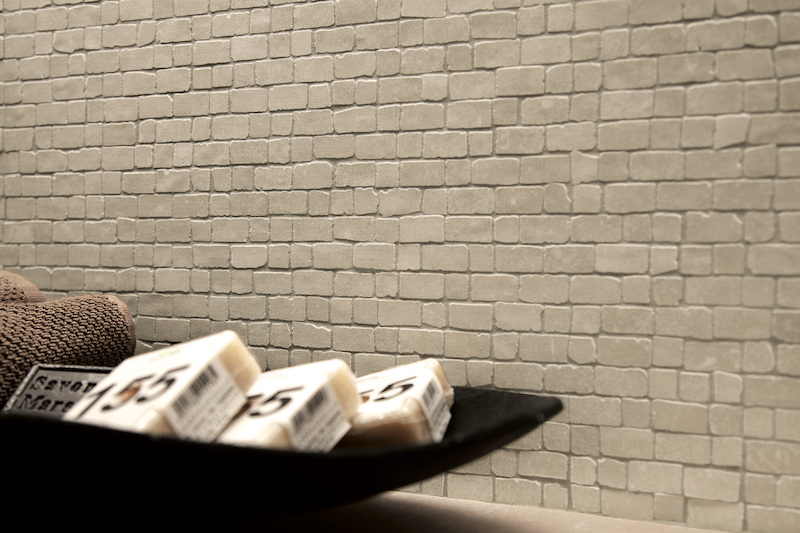 Pictured: Fap - Maku
Pictured: Fap - Maku
Many companies are introducing collections characterized by a random assortment of fragmented pieces, lending an eclectic and playful visual narrative to the surface. Some of the designs are inspired by natural stone with a conglomerate look such as Ceppo di Gré while others convey a sense of manual processing such as Venetian terrazzo and irregular stone mosaics.
Black & Blue
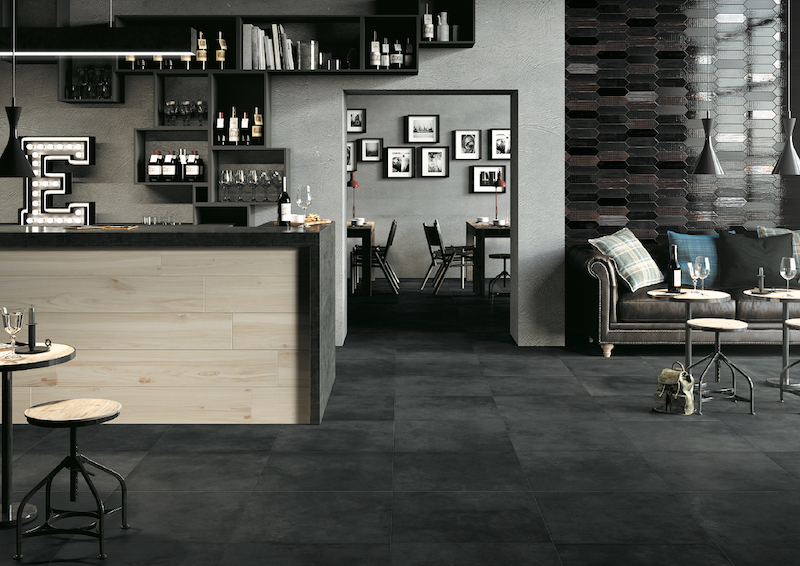 PIctured: Mirage - Reve
PIctured: Mirage - Reve
While black is always in style, intense blacks with matte finishes are making a strong statement this year. Meanwhile, blue – which has been popping up everywhere this year from fall fashion shows to hair color – is taking the tile industry by storm, expanding beyond last year’s marine palette to include dusty, vibrant, and sophisticated hues of blue.
Gritty Chic
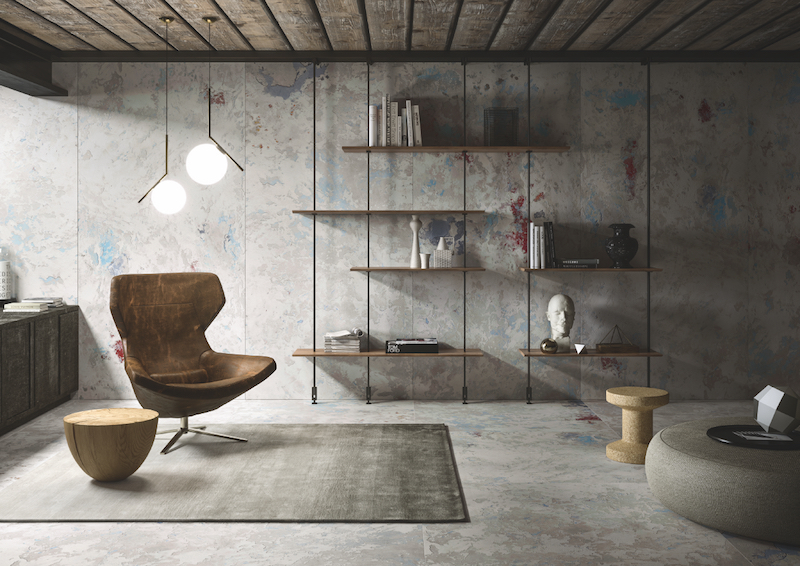 Pictured: Cedit - Archeologie
Pictured: Cedit - Archeologie
Adding an edge to interiors, tile companies continue to experiment with plaster, concrete, metal and resin. Some designs are elegant interpretations of industrial surfaces, offering a kind of raw sophistication, while others are intentionally corroded and weathered, conjuring a romantic notion of the passage of time.
Mega Marble
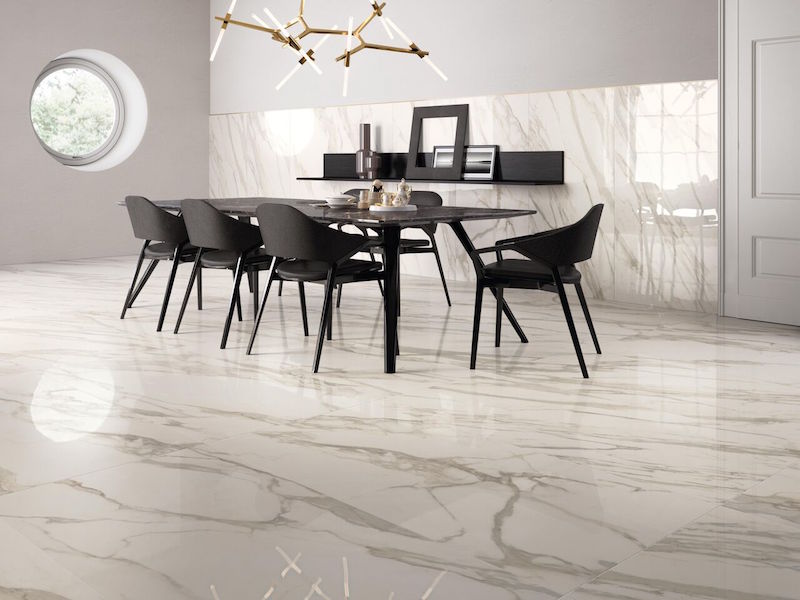 Pictured: Supergres - Purity
Pictured: Supergres - Purity
For designers who love the brilliant look of marble but loathe the headaches associated with it, porcelain tile is a no-brainer. Digital printing has become so advanced that it’s hard to tell whether the material is calacatta or ceramic, even after touching the surface. Being stain, scratch and chemical resistant, it gives clients freedom from fear (especially of red wine) and provides a low maintenance and low cost alternative to the precious material. Companies are producing these wunder objekts in sizes up to 5.25’ x 10.5’ and thicknesses ranging from a typical tile thickness of 10mm for heavy traffic floors to super thin ceramics that can be used to cover doors, furnishings and walls.
Metallics
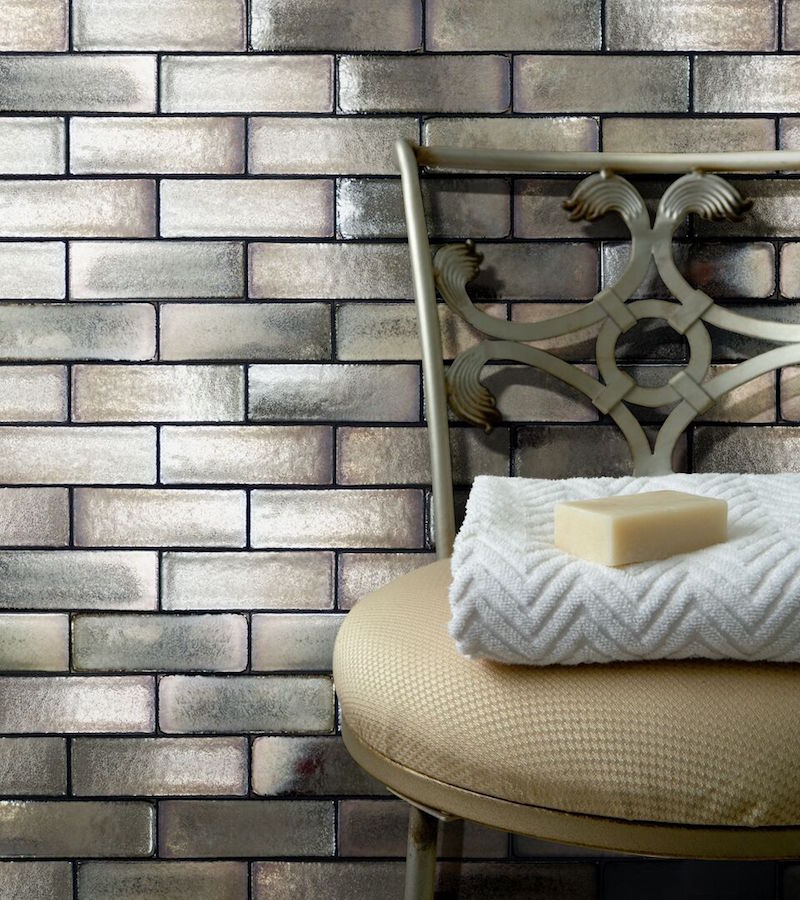 Pictured: Unica - Brique
Pictured: Unica - Brique
With metallics’ growing popularity, beyond product design and into the built environment, it's unsurprising that tile companies are adding more metallics to the mix than ever before. Bronze, platinum and gold are the key players, often acting as inserts or decorative accents, adding a bit of glamour to collections often inspired by natural materials.
Retro Revival
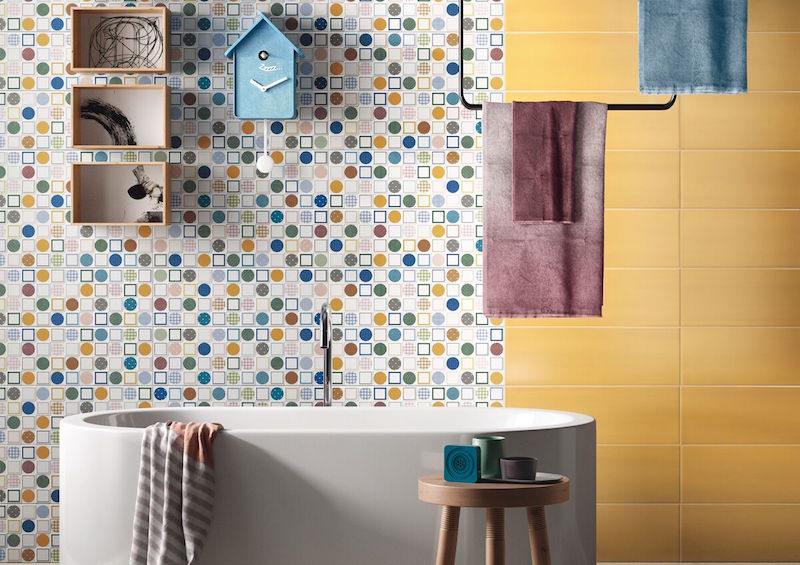 Pictured: Imola - Play
Pictured: Imola - Play
Great designers learn from history, borrowing elements from the past and infusing them with contemporary ideas to create something completely new. Retro is a trend that has been percolating for years, especially with the graphic appeal of cementine and maiolica, but now other historical movements have joined the fold, from the elegance of art deco to the bold shapes and hues of Memphis.
Rustic Modern
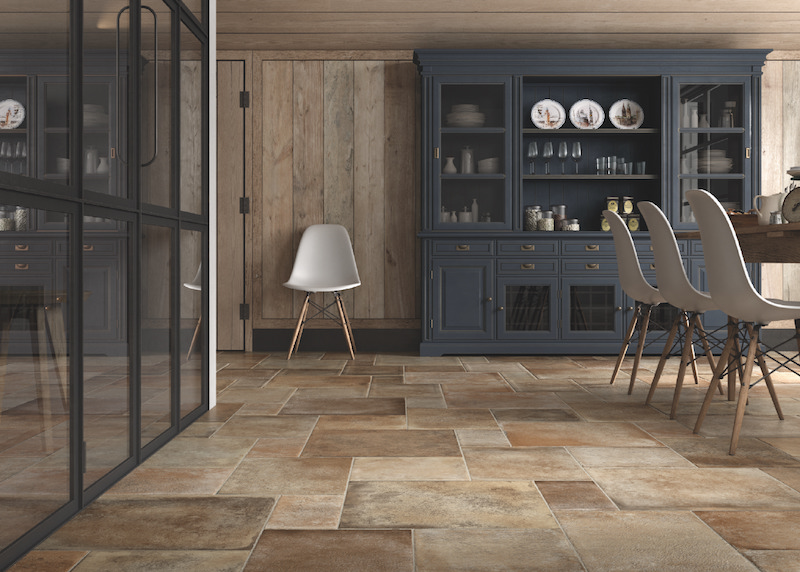 Pictured: Manifattura del Duca - Cotto Med
Pictured: Manifattura del Duca - Cotto Med
Adding a new twist to country style, wood, stone, brick and cotto are invigorated by modern laying schemes, hues and patterns. Antique stone with metallic accents, terracotta in quatrefoil shapes, and geometric patterns overlaid onto distressed wood planks are just a few of the ways tile companies are blending farmhouse charm with modern elegance.
Seamless
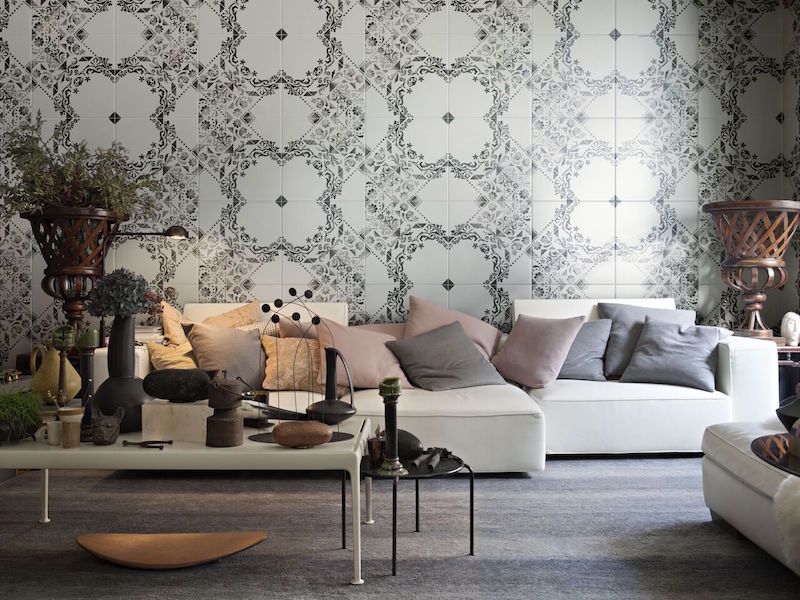 Pictured: Bardelli - Eve
Pictured: Bardelli - Eve
With decorative surfaces undergoing a renaissance, tile offers the perfect solution to create a contemporary fresco, combining the tactile appeal of wallpaper with the durability of ceramic. From large, thin porcelain tile panels and mesh-mounted mosaics to patterns that traverse a single tile's dimensions, Italian manufacturers are giving designers the tools to create a beautifully seamless surface.
Warp & Weft
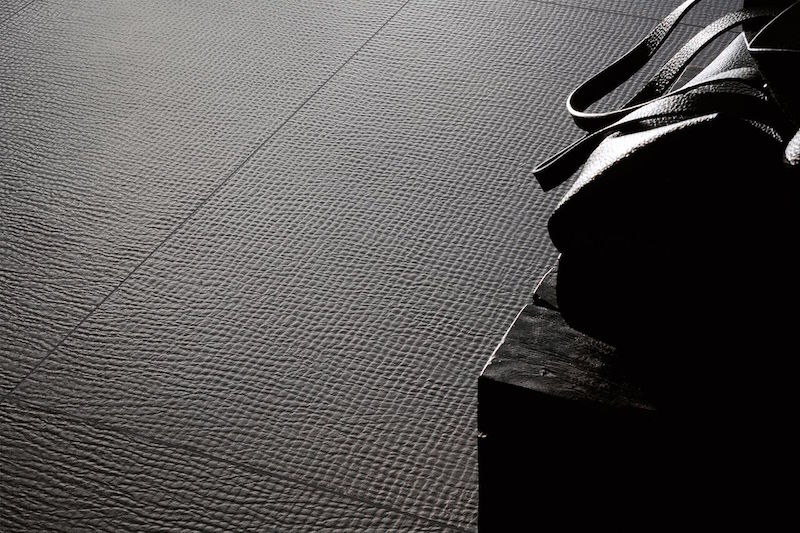 Pictured: Coem - Patchwork
Pictured: Coem - Patchwork
Texture is the defining character of this year’s tile collections, which complements the many new textile inspired lines. Designs range from lace, macramé, linen and madras to masculine suiting fabrics, leather, tweed and tartan. Whether woven, knitted, knotted, or layered, the designs add another tactile element to the hard surface.
Related Stories
| Mar 21, 2014
Forget wood skyscrapers - Check out these stunning bamboo high-rise concepts [slideshow]
The Singapore Bamboo Skyscraper competition invited design teams to explore the possibilities of using bamboo as the dominant material in a high-rise project for the Singapore skyline.
| Mar 20, 2014
Common EIFS failures, and how to prevent them
Poor workmanship, impact damage, building movement, and incompatible or unsound substrate are among the major culprits of EIFS problems.
| Mar 20, 2014
13 dazzling wood building designs [slideshow]
From bold structural glulam designs to striking textured wall and ceiling schemes, these award-winning building projects showcase the design possibilities using wood.
| Mar 19, 2014
Federal agency gives thumbs up to tall wood buildings
USDA's support for wood projects includes training for AEC professionals and a wood high-rise design competition, to launch later this year.
| Mar 17, 2014
Rem Koolhaas explains China's plans for its 'ghost cities'
China's goal, according to Koolhaas, is to de-incentivize migration into already overcrowded cities.
| Mar 12, 2014
14 new ideas for doors and door hardware
From a high-tech classroom lockdown system to an impact-resistant wide-stile door line, BD+C editors present a collection of door and door hardware innovations.
| Mar 10, 2014
Meet Tally – the Revit app that calculates the environmental impact of building materials
Tally provides AEC professionals with insight into how materials-related decisions made during design influence a building’s overall ecological footprint.
| Mar 5, 2014
5 tile design trends for 2014
Beveled, geometric, and high-tech patterns are among the hot ceramic tile trends, say tile design experts.
| Mar 4, 2014
How EIFS came to America
Design experts from Hoffmann Architects offer a brief history of exterior insulation and finish systems in the U.S.
| Feb 27, 2014
12 facts about heat-treated glass: Why stronger isn’t always better
Glass is heat-treated for two reasons: the first is to increase its strength to resist external stresses such as wind and snow loads, or thermal loads caused by the sun’s energy. The second is to temper glass so that it meets safety glazing requirements defined by applicable codes or federal standards.


